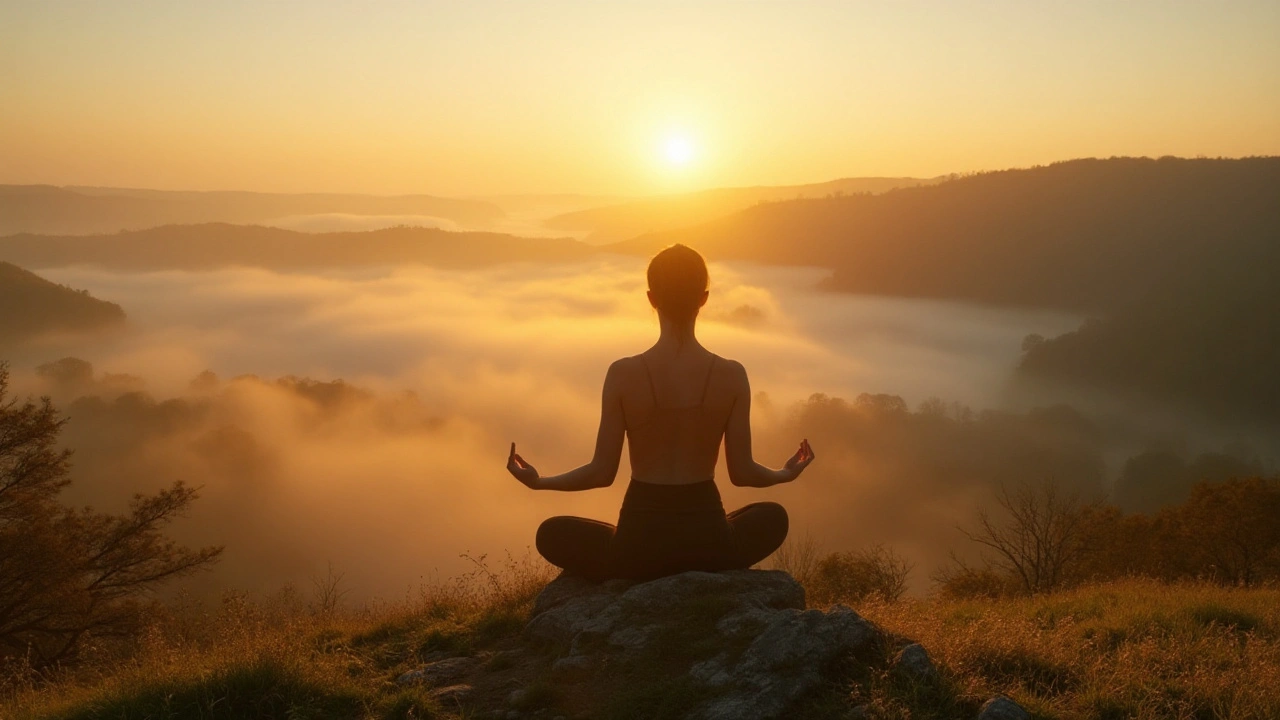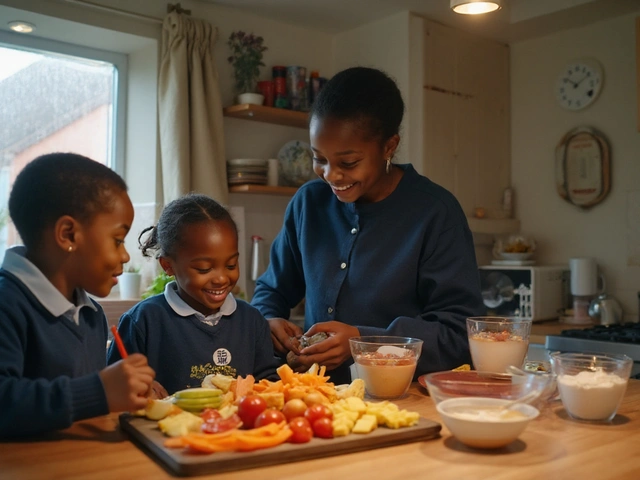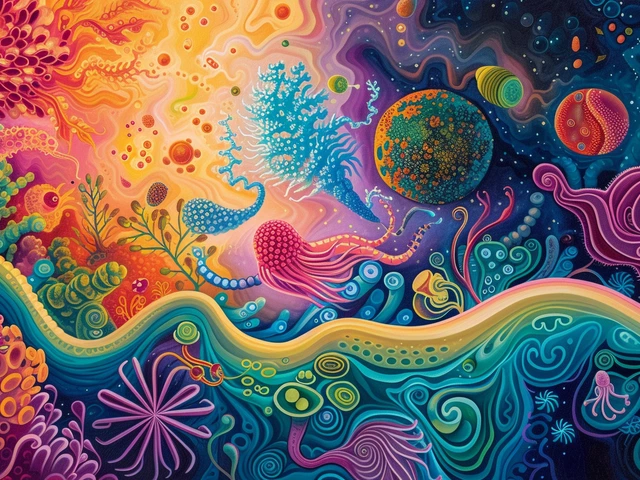Life can sometimes feel like a whirlwind, leaving even the calmest among us occasionally frazzled. Knowing how to unwind is more than just a luxury—it's a crucial aspect of maintaining good mental health and overall well-being. The journey to inner calm doesn't require a lengthy trip or a substantial budget. There are numerous ways you can incorporate simple relaxation techniques into your daily routine to significantly enhance your quality of life.
People have practiced relaxation in various forms throughout history, blending ancient wisdom with contemporary science. Whether it's taking a deep breath or finding solace in a quiet moment, understanding the right methods can transform the way you manage stress. This article guides you through a range of techniques, offering valuable insights and actionable tips to help you find peace in a hectic world.
- Understanding Stress and Its Impact
- Traditional Relaxation Techniques
- Modern Approaches to Finding Calm
- Integrating Relaxation into Daily Life
Understanding Stress and Its Impact
Stress has become an almost ubiquitous feature of modern life, infiltrating our daily routines, subtly shaping our decision-making processes, and undeniably impacting our overall health. To truly appreciate the power of relaxation techniques, it's crucial to comprehend what stress is and how it manifests in both mind and body. Stress is fundamentally a response mechanism, designed by nature to help us face threats. This "fight or flight" response pumps adrenaline into our system, quickens our pulse, and heightens our senses, preparing us to tackle immediate danger. However, in today’s society, where the threats are often less about physical survival and more about enduring deadlines or navigating social intricacies, stress can become a chronic companion.
The body’s reaction to prolonged stress can lead to a myriad of health issues. Chronic stress is known to wreak havoc on one's immune system, making individuals more susceptible to illnesses ranging from the common cold to more serious conditions. It's also a major contributor to mental health disorders, such as anxiety and depression, which are increasingly common across various demographics. According to the American Psychological Association, stress levels are on a constant rise, noting that technology, while advancing our lives in numerous ways, contributes significantly to anxiety and stress. The constant barrage of notifications, the pressure to maintain an image on social media, and the blurring of work-life boundaries are modern stress triggers that our ancestors would find hard to comprehend.
The impact of stress doesn't end with physical health; it extends into every facet of our life, influencing relationships, work productivity, and overall quality of life. Stress can cloud judgment, leading to decisions we might later regret, or trigger an emotional response that seems disproportionate to the situation. It's a pervasive force that, when unmanaged, can erode the very fabric of our happiness. Harvard Medical School notes a direct correlation between sustained stress and decreased gray matter in the brain areas related to emotional regulation and cognitive function. It's staggering to realize how much control stress can exert over our lives if left unchecked.
Recognizing these impacts is the first step toward seeking balance. Acknowledging that the demands of modern life can sometimes exceed our coping capacities is not a sign of weakness; it's a vital step towards integrating meaningful change. By employing effective stress relief strategies, we regain control, redirecting our energies in ways that allow us to thrive under pressure rather than crumble. The serenity found in these practices doesn't eliminate stress, but rather, equips us with resilience, turning what once seemed insurmountable into manageable, perhaps even inspiring, challenges.
"Stress is the trash of modern life – we all generate it, but if you don't dispose of it properly, it will pile up and overtake your life," said Danzae Pace, highlighting the need for effective management strategies.
As we delve further into this topic, it's essential to remember that stress management is deeply personal; what works wonders for one may not suit another. Stress relief, at its core, is about finding harmony within oneself. This journey, bolstered by knowledge and practice, opens doors to profound personal growth and lasting wellbeing.
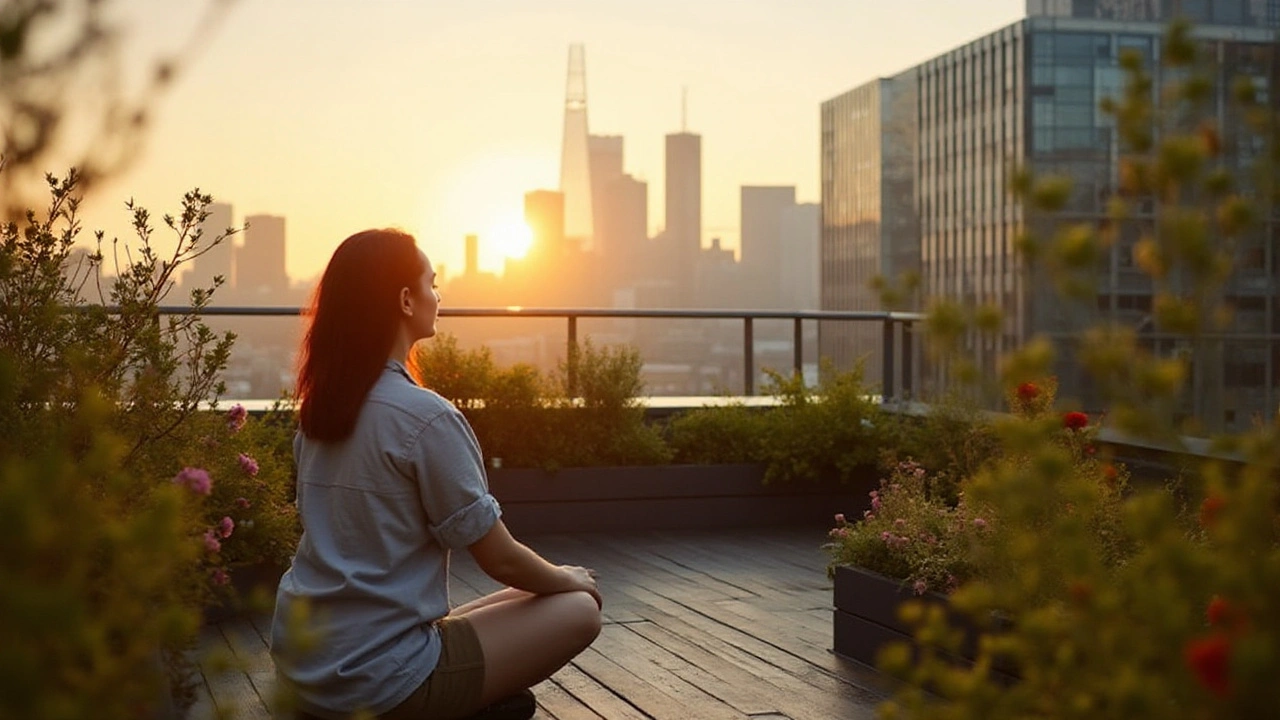
Traditional Relaxation Techniques
Exploring traditional relaxation techniques is like taking a journey back through time, witnessing how various cultures have approached the universal need for serenity. These methods have been honed over centuries, offering rich insights into achieving tranquility. One of the oldest and most respected practices is yoga, which originated in ancient India. Yoga integrates physical postures, controlled breathing, and meditation, creating a holistic approach to relaxation and well-being. Regular yoga practice not only enhances flexibility and strength but also significantly reduces stress, making it a comprehensive tool for both body and mind. Across the globe, tai chi, often described as meditation in motion, holds a similar place in Chinese culture. Derived from martial arts, this practice involves slow, graceful movements combined with deep breathing, promoting balance, mental calmness, and physical health.
Another cherished traditional method is meditation, with roots reaching back thousands of years in various spiritual traditions. Meditation is the art of focusing the mind, often achieved by sitting quietly and concentrating on the breath or a mantra. According to a study published in the 'Journal of the American Medical Association,' consistent meditation practice can significantly reduce symptoms of anxiety, depression, and pain, making it a powerful tool in the fight against stress. Aromatherapy, using essential oils like lavender and chamomile, is also an ancient practice that enhances mood and reduces anxiety through scents, affecting the brain's limbic system, which controls emotions. This age-old tradition is still a popular complement to other relaxation techniques, providing a sensory path to calmness.
The Dalai Lama has been quoted as saying, "The greatest degree of inner tranquility comes from the development of love and compassion." Such insights remind us that incorporating elements of empathy into our relaxation practices can enhance their efficacy dramatically.
Incorporating traditional techniques into your modern lifestyle can be surprisingly seamless. Consider setting aside just a few minutes each morning for yoga or meditation, starting small and gradually increasing your practice's duration as you become more comfortable. Even incorporating mindful breathing exercises during work breaks can make a transformative impact. Additionally, using essential oils can be as simple as adding a few drops into a diffuser or onto your pillow, instantly transforming your environment into a sanctuary of serenity. A 2018 study from Harvard Health found that mind-body practices like yoga and tai chi lead to noticeable reductions in stress hormones like cortisol, bolstering their relevance in today's high-paced lives.
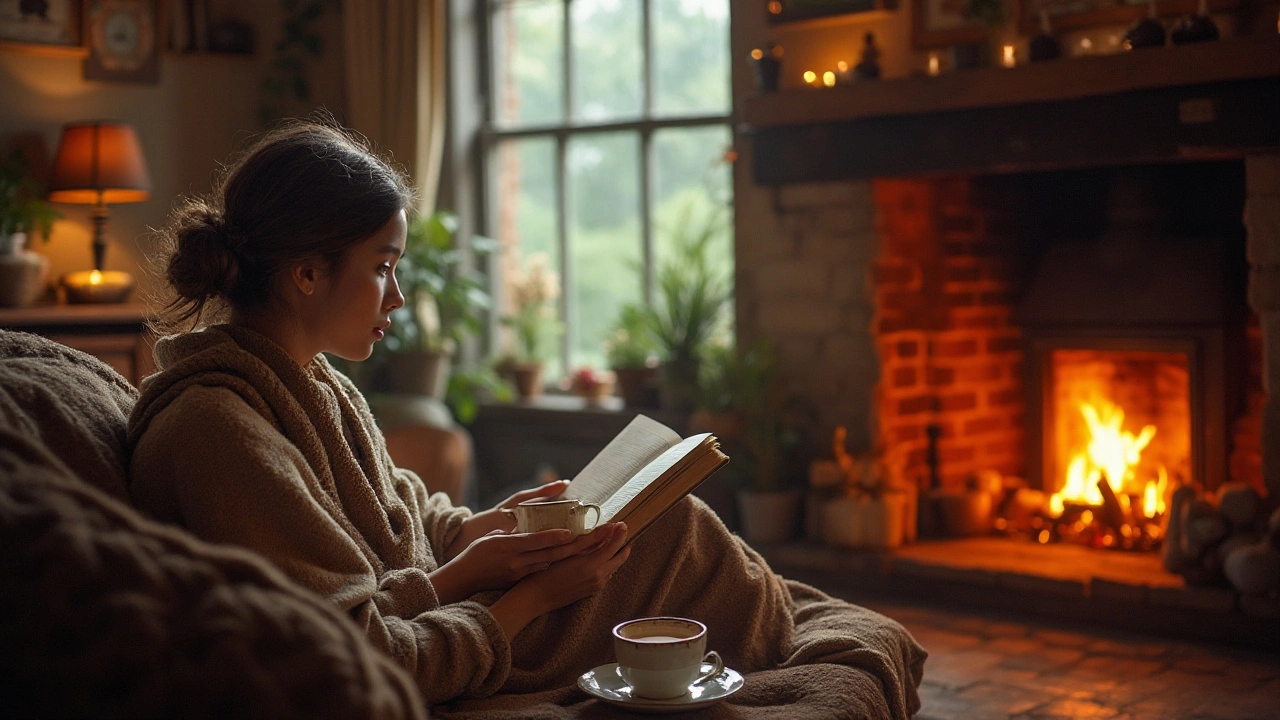
Modern Approaches to Finding Calm
In today’s world, where technology dominates our daily lives, finding innovative ways to achieve stress relief is essential. Traditional practices have merged seamlessly with advanced techniques, providing new pathways to peace. One of the most popular modern methods is the use of mindfulness apps. These tools offer guided meditations, calming sounds, and breathing exercises, all conveniently accessible at your fingertips. Studies show that regular use of mindfulness apps significantly reduces anxiety levels and improves focus, as highlighted in a 2023 report by the American Psychological Association.
Virtual reality (VR) meditation is soaring in popularity. Unlike standard meditation, VR immerses individuals in tranquil environments, ranging from serene beaches to majestic mountain tops, all from the comfort of one’s living room. This sensory experience deepens relaxation, enhancing the benefits of traditional meditation practices. A 2022 survey revealed that participants practicing VR meditation reported a 45% increase in stress reduction compared to those using conventional methods.
For those who lean towards group settings, digital wellness retreats have emerged as a novel way to connect and unwind. These retreats offer workshops, yoga sessions, and motivational talks via platforms like Zoom, bringing communities together without the geographical constraints. The beauty of such retreats lies in their flexibility, as people can join from anywhere in the world. These digital gatherings support mental health by fostering a sense of belonging and shared goals for personal well-being.
"The new age of relaxation focuses on blending technology with mindfulness. These tools are not just advancing how we relax but revolutionizing our approach to mental health," says Dr. Sylvia Caldwell, a leading expert in digital therapy innovations.
Biofeedback therapy is another contemporary technique gaining traction. It involves using sensors to monitor physiological functions, such as heart rate and breathing. By providing real-time feedback, individuals learn to control these functions consciously, lowering stress levels effectively. This method empowers individuals with a deeper understanding of how their body responds to stressors, allowing them to implement targeted relaxation techniques immediately.
Smart home technology also plays a role in creating calming environments. Devices like smart lights and speakers can set the mood for relaxation; by syncing these devices with your daily schedule, you can automate settings to dim lights and play soothing music during your designated relaxation times. It's about creating a sanctuary at home where one can escape the hustle and bustle of daily life.
The fusion of technology and mindfulness creates a plethora of opportunities to unwind and find calm in the modern age. As society continues to evolve, these innovative techniques promise to reshape our understanding and experience of tranquility, offering more personalized and interactive ways to reduce stress and improve mental health.
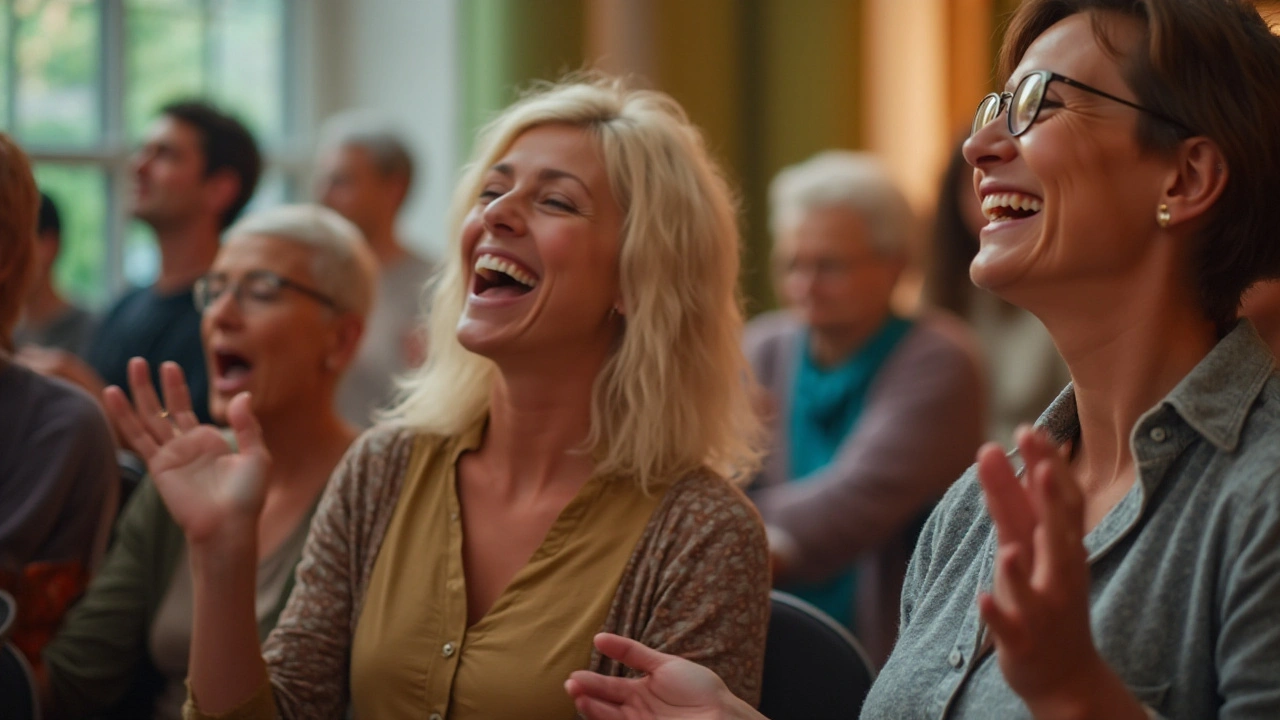
Integrating Relaxation into Daily Life
Bringing relaxation techniques into the rhythm of everyday life may seem like a daunting task, but it can be remarkably straightforward with a little planning and conscious effort. To start, it's essential to identify the moments in your day where stress typically peaks. This may include hectic morning routines, demanding work schedules, or the rush of evening obligations. By pinpointing these times, you can strategically insert moments of calm, transforming stress into opportunities for tranquility.
One effective approach to cultivating a routine of stress relief is to establish daily rituals that prioritize relaxation. Morning meditation or yoga sessions, for instance, set a peaceful tone for the day. These practices not only ease the mind but also enhance physical flexibility and strength. Inscribing a few minutes for deep breathing exercises during lunch breaks or engaging in mindful walks amidst nature can substantially reduce tension and recharge your energy levels.
Creating a Relaxing Environment
Our surroundings greatly affect our mood and well-being. Designing spaces that promote relaxation in your home or office can significantly enhance your ability to calm down. Consider ambient factors such as lighting, sound, and aroma. Soft, natural lighting, calming music, or the soothing scent of lavender and eucalyptus can help transform any environment into a retreat of serenity. Personal touches, like cozy cushions or tactile fabrics, can add warmth and comfort to your haven of calm."To attain true happiness, one must cultivate a strong sense of detachment from all worldly ties that clamor for attention," remarked the philosopher Epicurus, highlighting the enduring human need for spaces that disconnect us from undue stress.
Leveraging Technology Mindfully
While gadgets are often blamed for heightened stress levels, when used mindfully, they can support your path to a more relaxed life. Many apps and gadgets are designed to promote meditation and relaxation, offering guided sessions that help users unwind anytime, anywhere. Features like gentle reminders to take breaks, or timers for meditative exercises can reinforce your commitment to practicing relaxation techniques consistently.Modern life brings myriad challenges, but embracing these practical strategies to integrate relaxation into your day can nurture resilience and peace of mind. By making relaxation a daily habit, you equip yourself with powerful tools not only to manage stress but also to enhance your overall well-being. Remember, the aim is not to eliminate all stress, but to learn to ride the waves of life with a steady heart and a conscious mind.
